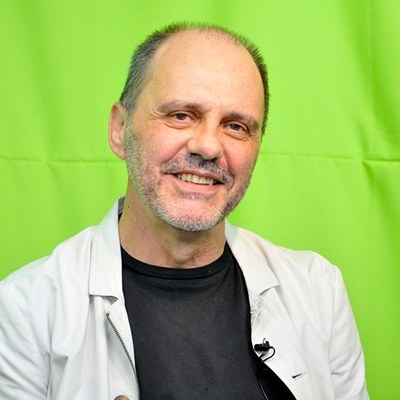Climate Justice is Only Achievable through Broad Societal Participation in Debates, Emphasize Special Envoys
Clemente Ganz and Denise Dora, who work on issues related to Trade Unions, Human Rights, and Just Transition, emphasize that discussions on climate change mitigation and adaptation must include the whole of society and take into account the impacts on workers

By Mayara Souto / COP30
“Climate justice means engaging all people in addressing the climate emergency and in the transition to a low-carbon economy,” emphasizes Clemente Ganz, COP30 Special Envoy for Trade Unions. In the same vein, Denise Dora, Special Envoy for Human Rights and Just Transition, adds that advancing equitable climate action requires “democratic” debate, ensuring the participation of diverse social sectors—including government, the private sector, and civil society.

As part of the ongoing COP30 Special Envoys series, civil society representatives underscore the importance of amplifying the voices of organizations, communities, and workers at the conference, particularly within the Action Agenda.
“To shape the climate agenda, it is essential to establish dialogue with movements, NGOs, research institutes, and universities from the perspective of defending fundamental rights,” Dora affirms. “We also need to reverse the flow—sharing with national and international communities how the climate agenda offers solutions to many pressing challenges.”
According to the Special Envoy, broad participation is a prerequisite for addressing climate change. “Climate justice depends on information, participation, transparency, and sustained dialogue among public institutions, businesses, movements, and organizations. For many reasons—but fundamentally—because the climate agenda must be democratic. It must be shaped by multiple layers of social participation,” she emphasizes.
Just Transition
The Special Envoy on Trade Unions highlights that the working class is directly affected by the impacts of climate change, including those stemming from mitigation efforts such as the energy transition, which is reshaping the structures of various economic sectors.

He warns that a just transition must occur in a “balanced” manner, ensuring that workers and communities “are not harmed in the process of shifting to a low-carbon economy.”
Brazilian Expertise
Denise Dora sees Brazil as having strong potential to lead global discussions on just transition. The country is already among the most advanced in energy transition, with 93% of its electricity currently generated from renewable sources, placing it in a privileged position to share experiences and solutions with the rest of the world.
The expert underscores Brazil’s history of resilience, crisis management, and creative problem-solving. She notes that these strengths are already being reflected at COP30 through the Action Agenda and the Solutions Hub, which showcase initiatives led by civil society, public institutions, and the private sector in addressing climate change.
Translation: Michel Emmanuel Félix François (POET/UFC)
Proofreading: Tadeu Azevedo (POET/UFC)
